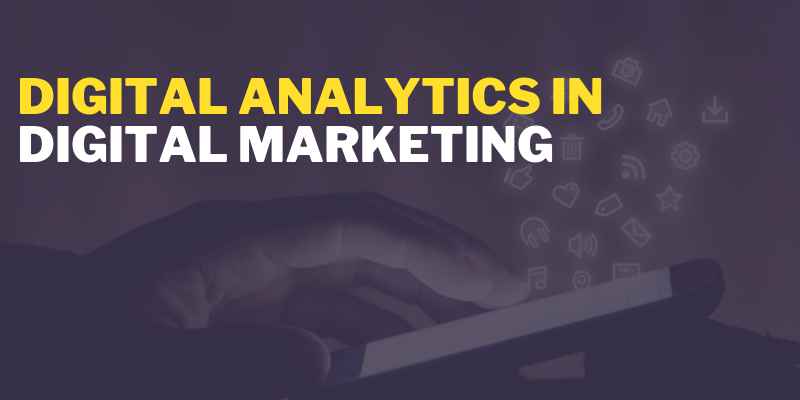Digital Analytics in Marketing:
Digital analytics, in the context of marketing, refers to the tools that are used to assess and report on marketing data received through your company’s digital channels. Social media networks like Instagram, Facebook, and LinkedIn are examples of these channels. They could include your display or search ads, email, affiliate marketing sites, and a variety of other things.
Let’s take a look at digital analytics in marketing from the perspective of the customer. Assume a consumer adds an item to their shopping basket and then purchases it. You’ve acquired a new client. However, you’ve met this individual before and to learn more about data analysis in digital marketing, join Digital Marketing Course in Chennai.
You probably engaged with them hundreds of times and in multiple locations. They were familiar with your business long before you were.
They looked up your main competitors, looked up your brand on social media, and found a reference in a blog post.
They were interested in the useful information you provide on the internet.
Before that transaction, you’d been communicating for quite some time. Digital analytics marketing guarantees that such connections are meaningful. This is how you achieve measurable business results.
Types Of Digital Analytics in Marketing:
The following are the four main categories of digital analytics in marketing. And you’ll need each of them to come up with a complete plan.
Competitive landscape analytics – Analyzing how competitors attract, convert, and keep customers in the competitive landscape
Customer behaviour analytics- It is the process of discovering what, where, when, how, and for how long your customers behave online.
Performance analytics – How well your brand is performing in key areas like Instagram and Google is measured by performance analytics. KPIs such as sales, revenues, average order value, and so on.
Predictive analytics – Predictive analytics in marketing foresees your customer’s next move. Be present with the appropriate message.
Online Digital Marketing course at FITA Academy will enhance your technical skills in digital Marketing via practical sessions provided here.
Advantages Of Digital Analytics:
You can use digital analytics in marketing to:
- Learn more about your most likely customers so you may better target them.
- Customer retention
- Customer lifetime value should be increased.
- Actively engage with customers
- Deliver the appropriate message at the appropriate moment
Importance of Analytics in Digital Marketing
What are the benefits of marketing analytics?
So, here’s the deal:
The Internet is a congested environment. You’ll squander resources on things that don’t work if you’re not hyper-focused.
In digital marketing, web analytics focuses your efforts to save time and money. To maximise ROI, optimize everything.
How Do You Analyze a Digital Marketing Strategy?
A lot is left to guesswork without a digital marketing analytics approach. Where does traffic originate? Why are customers choosing rival X over you?
The correct analytics and market intelligence can help you see what’s going on behind the scenes. So now you understand why, where, and how.
You now have the ability to take action.
For example, perhaps you’ve spent a lot of time on Twitter. All of those admirers must add up to something.
Conclusion:
So far we have discussed about analytics in digital marketing and to learn more about digital marketing analytics and what is SEM in Digital Marketing, join Digital Marketing Course in Coimbatore at FITA Academy.
